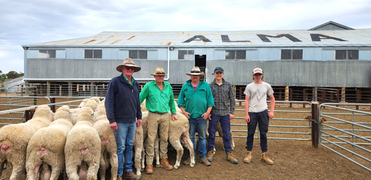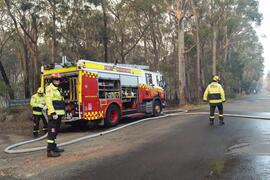Farmers fire up over invasive ant response: A risk to farming and the Aussie BBQ
Krista Schade
07 November 2024, 10:00 PM

The National Farmers’ Federation warns that the Federal Government’s dismal response to the Red Imported Fire Ant Senate Inquiry Report will come back to bite.
In the Government’s response to the Senate inquiry, it says it has confidence in the National Fire Ant Eradication Program (NFAEP) and its delivery, and is not committing funding beyond 2027. Instead, it is deferring to reviews in 2025 and another in 2026-27.
NFF Sustainable Development and Climate Change Committee Chair Angus Atkinson said the response fell pitifully short of a problem that needed the kitchen sink thrown at it.
“It appears the Government is underestimating this pest. Red fire ants pose a mammoth risk not only to farming, but to humans, animals, plants and the quintessential Aussie backyard barbecue,” Mr Atkinson said.
“This isn’t just a farmer problem. This is an everyone problem. In the United States, urban homeowners spend millions each year controlling the ants in their homes, gardens and lawns.
“If these ants keep marching, Australians can say goodbye to picnics in the park and backyard barbecues.
“These ants are expert hitchhikers, jumping on vehicles or shipping containers.
“They get their name from a sting that makes the body feel like it’s on fire, a painful sensation that can last up to an hour and is followed by itchy pustules.
“They have no natural predator in Australia and have the potential to kill off plants and animals – both native and in agriculture.
“Stings to cattle can result in blindness, swelling and suffocation, or in the worst case, multiple stings can cause death.”
The NFF is calling for adequate funding to ensure eradication and strong leadership that cuts through bureaucracy.
“It reiterates the need for risk creators to contribute to more biosecurity funding. This nasty pest first arrived in Australia via shipping cargo.
“Eradication efforts are under strain and lack the resources necessary to prevent further spread. This response falls short of what’s required and we call on the Government to increase resourcing and commit to long-term funding.
“It’s also a chance for the new Queensland Government to earn its stripes with agriculture, given the state’s important role in leading the nationally funded National Fire Ant Eradication Program and the Queensland Government Fire Ant Suppression Taskforce.”
Read the NFF’s submission to the inquiry HERE.
RURAL
NEWS





